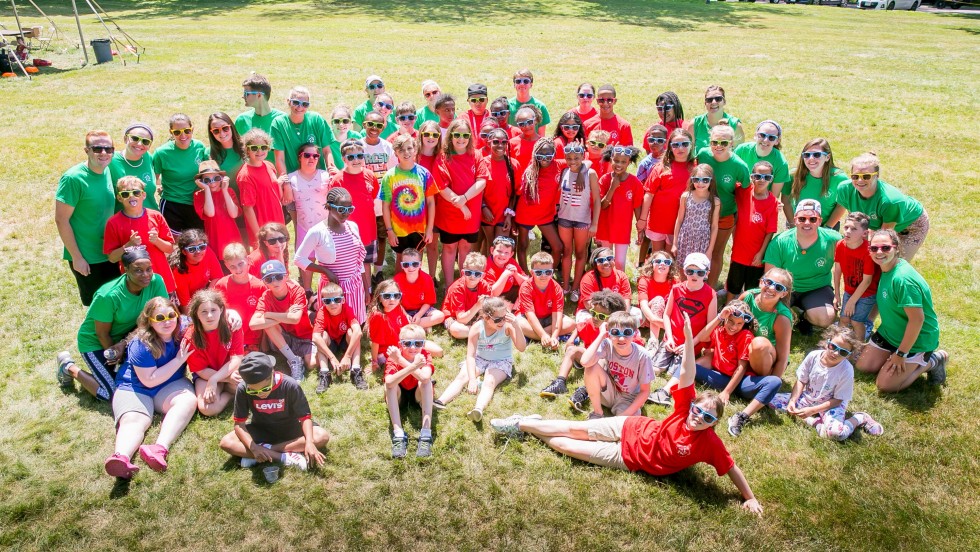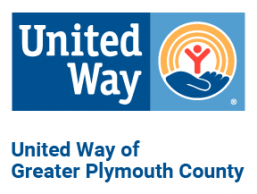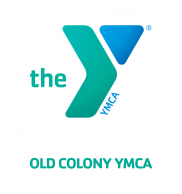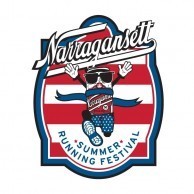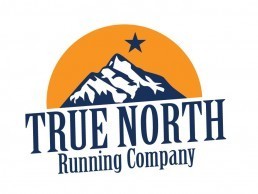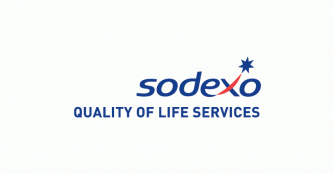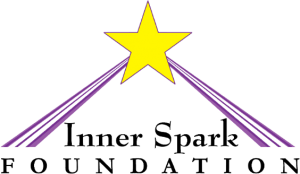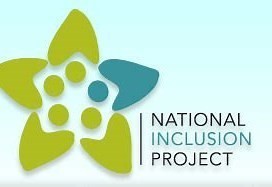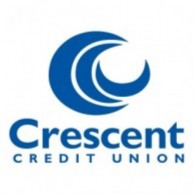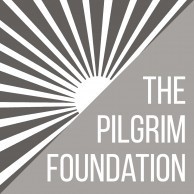Camp Shriver
2019 Report to Donors
In 2013, Stonehill College—replicating the work of UMass Boston’s Center for Social Development and Education—launched our first fully-inclusive summer program. For the past seven years, Camp Shriver at Stonehill has sponsored over 400 campers (approximately 60 campers each summer) ages 8-12, from communities in southeastern Massachusetts to develop their sports skills, social skills, and self-esteem.
Goals and Objectives
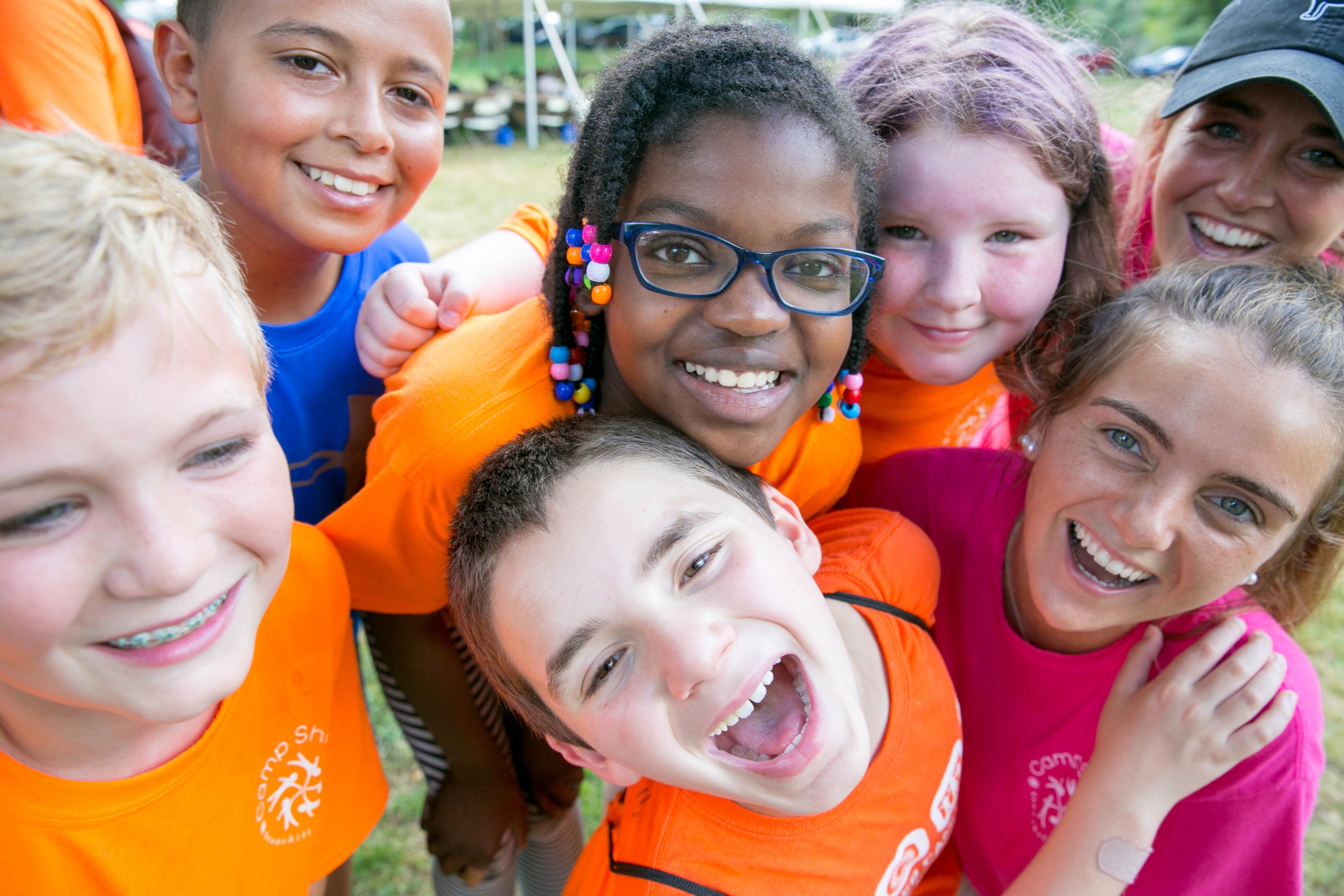
The goal of Camp Shriver is to provide a safe, inclusive environment for our campers as they develop their social and athletic skills.
This goal is measured by collecting quantifiable data on Camp Shriver’s objectives to:
- foster positive peer relationships among campers,
- improve camper social skills,
- promote a positive sense of self among campers,
- expand camper skills in swimming and team sports.
The Camp Shriver Model
For most children, attending summer camp is a typical life experience where they can learn new skills, build friendships, and experience personal growth in unique ways that only a recreational setting can provide. For children with disabilities, however, many barriers can impede their opportunity to take part in camp. While recreational programs offered by schools and community agencies may accept children with disabilities, few are designed to enroll an equal number of children with and without disabilities.
The Center for Social Development and Education (CSDE) at UMass Boston established Camp Shriver, a free summer sports camp that serves an equal number of children with and without disabilities, based on over 30 years of research in and out of the classroom. Camp Shriver changes attitudes and fosters acceptance among children with and without disabilities to transform society's vision and approach to its most vulnerable members. This innovative model positively impacts the attitudes of children and their communities so that all children, with and without disabilities, can play and learn as equals.
Camp Shriver offers over 50 hours of athletic instruction with embedded team building activities, as is modeled by the National Inclusion Project’s Let’s All Play curriculum. To achieve our goal of promoting motor and social development, as well as positive peer relationships among campers, Camp Shriver implements the CSDE model of inclusion:
- 50/50 Population: 50% of our campers have a disability—promoting a truly inclusive environment where every child has equal opportunities for participation and friendship;
- Need-Blind Staff in a Low 4:1 Camper-to-Staff Ratio. Camp staff – outside of the Faculty Director and Camp Co-Director(s) – are not informed which campers have a disability. Our experienced staff are trained in inclusive recreation methods and adapt activities and behavior management strategies, as needed, that focus on each child’s skills and abilities and not a particular label;
- Inclusive Sports Instruction. All activities (swimming, soccer, basketball, crafts and more) are adapted to create an opportunity for all children to play and develop their motor skills.
The 50-50 Approach
Camper Disability Status
Family Income Level
Camper Ethnicity
I’m in tears writing this – tears of joy. Family Day was awesome. I was so happy to see my son be a part of something that brings out the BEST in him. He has learned how to stay with a group and join in activities, which makes a big difference. My son has autism and I want him to feel good about being part of a team – thank you!
2019 Highlights and Accomplishments
Camp Daily Overview
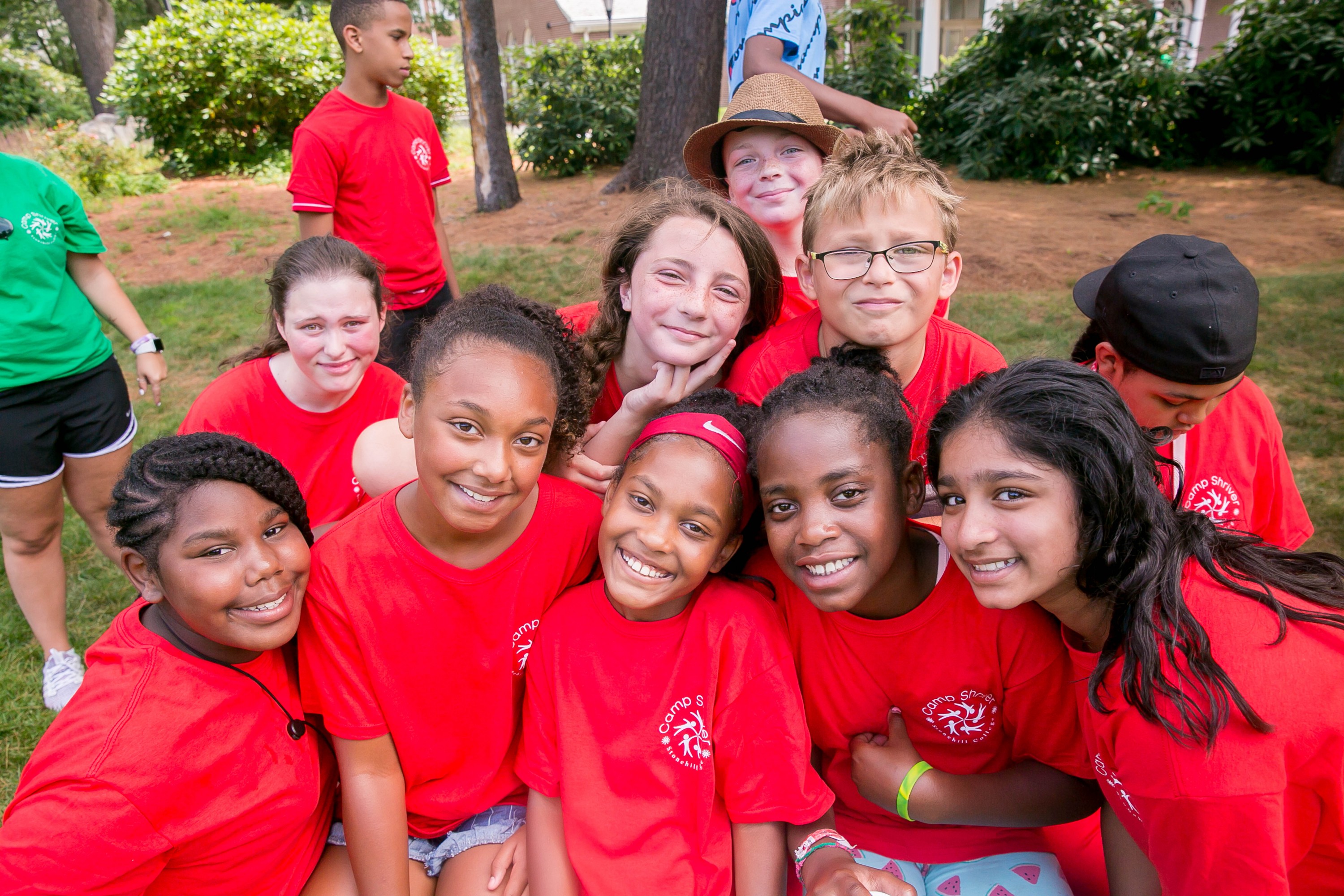
Camp Shriver at Stonehill held a four-week session from July 8 – August 2. Camp was in session Monday – Friday from 8:30 a.m. – 2:15 p.m. Campers were provided with free daily bus transportation to and from Camp Shriver at Stonehill from two convenient public school locations in Brockton - the Plouffe Academy and Arnone School. Children could also choose to be transported to Camp Shriver by a parent or guardian.
A nutritious and well-balanced meal is an essential component to the program, helping campers to be healthy, active, engaged, and fueled for the full array of activities offered throughout their day at Camp Shriver at Stonehill. At Camp Shriver, daily breakfast, snack, and lunch is provided at no cost.
Our activities are designed to strengthen social skills, sportsmanship, athleticism, and a spirit of collaboration between all campers. Activities are further designed to instill and promote a sense of confidence, interest, and achievement in each camper. Regardless of strength and ability, each camper had an opportunity to engage in recreational sports, games, arts and crafts, and other theme-related activities.
In 2019, we also continued to enhance some of the Camp Shriver activities that help to maximize the Camp Shriver experience:
Revamped Swimming Program – More structured pool time with formal lessons and skills assessments. Students were given an initial assessment of skills and placed in “levels.” As camp progressed, students moved up in the levels based on improvements in their swimming abilities. Formal lessons included water safety techniques such as floating, as well as an introduction to different strokes, lap swimming, and swimming for cardio/exercise.
Camp Olympics – In addition to the traditional field day, Camp Shriver added another special day of activities that focused on an Olympics theme. The day included Opening and Closing Ceremonies, fun events, and country-based teams with flags.
Alumni Day – The third year of including a special day for Camp Shriver alumni to visit and get involved with teams/activities.
Farm/nutrition program – A more robust partnership with the Farm was designed to improve healthy eating habits. The success of the partnership with the Farm will be the basis for even more programs in 2019 that highlight health and wellness community partnerships. Marathon Physical Therapy will be joining camp to offer physical therapy, stretching, and yoga techniques for our campers.
Camp Leadership and Staff
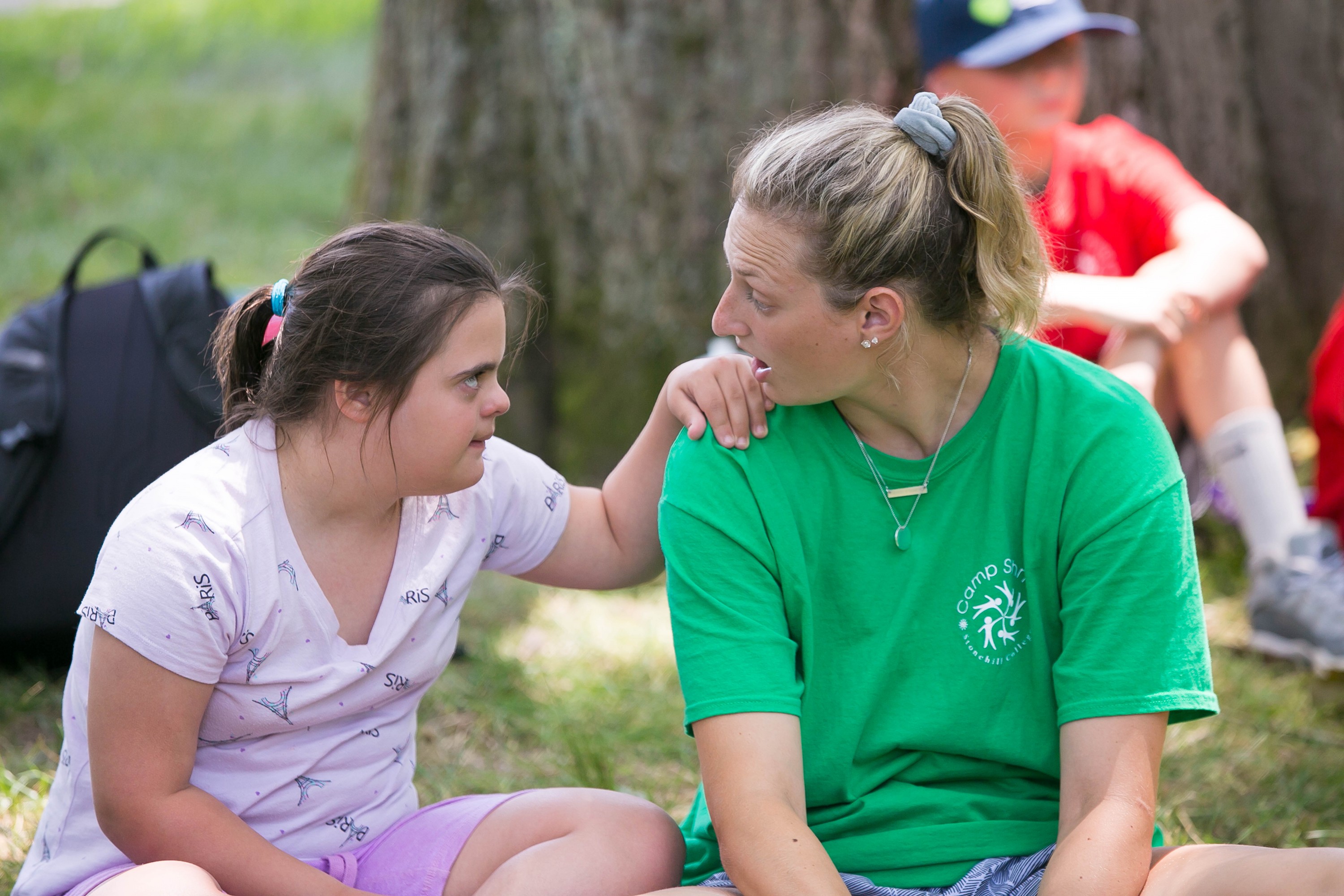
The 2019 staff at Camp Shriver at Stonehill consisted of eight paid staff positions – our Faculty director, two camp co-directors, four lead counselors, and a camp nurse. All eight paid staff members returned this year from previous camp sessions.
Additionally, the camp co-directors and one of the lead counselors are Stonehill alumni and started as counselor interns while they were students at Stonehill. Three lead counselors were current students who returned to serve in leadership positions. They are extremely familiar with the Camp Shriver model and are knowledgeable about working with children who have intellectual disabilities.
Campers also benefitted from the mentorship and supervision of our eleven counselor interns, most of whom are majoring in Education. Counselor interns received academic credit for their hours and worked with our faculty director and camp director to apply classroom lessons on inclusion and diversity to their work with their campers—helping them develop their skills in dealing with challenging situations or circumstances.
Lessons Learned and Continued Improvements
We continued to evaluate and refine our Camp program to meet the needs of our campers. Our camp leadership held daily assessment meetings with the counselor interns to monitor closely the campers who were having a difficult time—putting into place a targeted plan for some of our campers to help guide them toward an optimal experience.
Campers continued to benefit from the revamped swimming program, which allowed camp staff to help our campers gain confidence in the pool. A more structured swimming program was a result of counselor and camp leadership feedback on how to best support campers during this fun, but educational time. Water safety and swimming techniques took on a significant portion of our pool time as opposed to the previous “free swim” model.
Camp Shriver has made a difference in my son’s life in so many ways. With him having autism, he’s learned how to play with groups and learned that staying active is healthy. He enjoys interacting with camp staff and his friends – learning new games and just being outdoors is wonderful for him.
2019 Impact and Evaluation Report
The evaluation of Camp Shriver at Stonehill was conducted at Camp Shriver by Stonehill lead staff. The assessment instruments and methods were developed by the Center for Social Development and Education (CSDE) at the University of Massachusetts Boston.
In order to capture multiple perspectives of the camp’s success, the evaluation is comprised of three assessment instruments:
- Camper interviews were done 1:1 with each camper by the Camp Directors, Faculty Director, or Camp Nurse. Forty-six of the sixty-two campers (74%) participated in the camper interviews.
- Counselor observation logs were completed jointly by counselors for each camper in their group. Logs were completed weekly, thus giving us 4 points of data for each camper.
- Parents were asked to complete a survey at the end of the summer. (52% response rate)
Below are the main findings gathered from the 2019 information.
2019 Evaluation Main Findings
Campers and their families were happy at Camp Shriver at Stonehill
Campers also positively rated the individual aspects of their day, such as the activities, food, and staff. The counselors on their team were rated the highest on the happiness scale with free time and the food following right behind in the scores. Free time is the period at the end of the day when campers are expected to use the skills focused on during the day to invite friends to join them and reach out to include others in their games/activities. Many campers struggle to negotiate the unstructured time of this part of the day and will choose solo activities—a practice that counselors will redirect. This was the second year that campers ranked ‘free time’ so high. The pool and games, as well as the other kids at camp, got rave reviews.
Campers were also asked if there was something they did not enjoy about camp. By far, most responded with ‘nothing.’ When probed further, comments included logistics (didn’t like the pool water, weather too hot), specific activities (soccer, hockey) or specific campers with whom they struggled to communicate. Families tended to identify wishing for more years of eligibility and wanting more years for their siblings to attend together.
Campers felt part of their team
Campers formed friendships
Campers were also asked to rate how much they would like to hang out with each of their team members after the end of camp. All campers identified a teammate they wanted to hang out with after camp ended, demonstrating the strength of the relationships formed at camp.
Campers made improvements in their social skills
Social skills relate directly to inclusion and help to eliminate social isolation. The greatest improvement in campers’ social skills was observed among the skills children use to include their peers: offering to help their peers; inviting others to play with them; and encouraging or cheering on their peers. While less than half of campers entered camp consistently displaying these skills, the rest of our campers made gains over the four weeks. Of those who never or rarely engaged in these skills at the beginning of camp, by the end of camp, more than 85% of these campers were offering to help other campers more often and/or inviting other campers to play with them more often. All campers encouraged or cheered on their peers more often. By the conclusion of camp, almost all campers were observed helping, inviting, and encouraging their fellow campers. This was also consistent with last year’s information.
Campers developed their athletic abilities
Limitations
While gains can be documented quantitatively as well as anecdotally, the instruments cannot show how these skills translate past the camp scaffolding experience. Parents of returning campers reported anecdotally that their campers showed improved self-confidence and higher activity levels over the past school year. We will continue to work on ways to measure this more formally.
Conclusion
We can’t say enough about this program. It was so great for my boys. We hope to come back next year!
2019 Partners, Sponsors, and Donors
Camp Shriver at Stonehill is grateful for your support!
